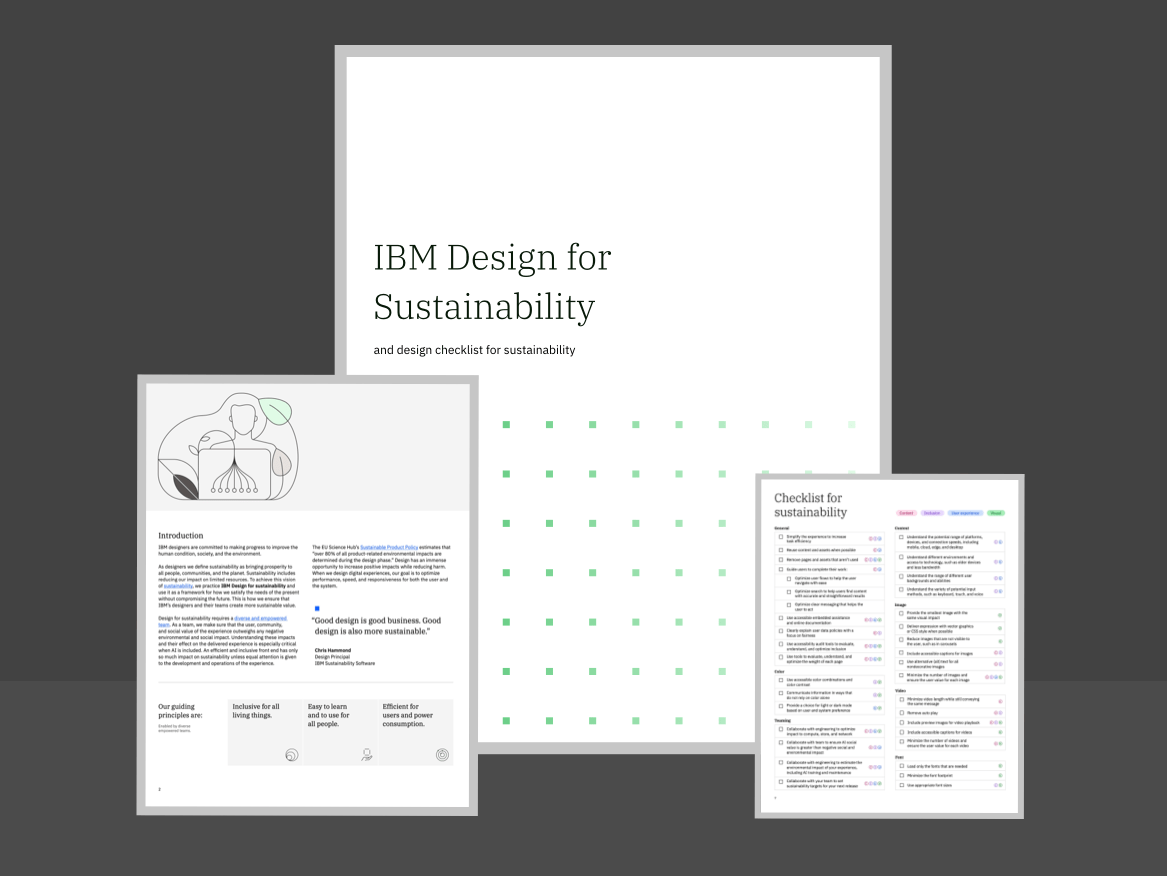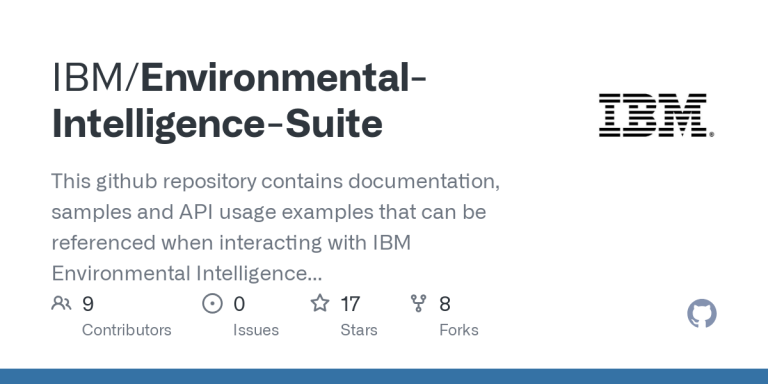IBM and Sustainability A Deep Dive
With IBM and sustainability at the forefront, this exploration delves into IBM’s comprehensive approach to environmental responsibility. From its public commitments to innovative technologies and impactful partnerships, IBM’s journey toward a sustainable future is impressive. The company’s commitment extends across various business units, showcasing a holistic strategy. This overview examines IBM’s key initiatives, technologies, and partnerships, ultimately revealing how they are shaping a more sustainable world.
IBM’s sustainability efforts are multifaceted, ranging from reducing its environmental footprint to enabling its clients to achieve their own sustainability goals. The report examines how IBM’s technology, like cloud computing and AI, empowers businesses to make more sustainable choices. Furthermore, it analyzes the challenges businesses face in adopting sustainable practices and how IBM is helping to overcome them. This in-depth look reveals IBM’s proactive stance in addressing global sustainability issues nd the potential of its solutions to create lasting change.
IBM’s Sustainability Initiatives
IBM has publicly committed to a range of sustainability goals, encompassing environmental protection, social responsibility, and ethical business practices. These commitments are integrated into IBM’s strategic planning and operations, reflecting a long-term vision for a more sustainable future. The company aims to leverage its technology to drive positive change across its value chain and contribute to a more equitable and environmentally sound world.
IBM’s Public Sustainability Commitments
IBM has articulated its sustainability goals through various public statements and reports. These commitments encompass a broad range of environmental and social initiatives, including carbon emission reduction targets, responsible sourcing, and community engagement. The company’s commitment is not just a matter of corporate social responsibility but a core element of its long-term business strategy.
Sustainability Programs and Initiatives Across Business Units
IBM’s sustainability initiatives are not limited to a single department or business unit. Across its diverse portfolio of products and services, IBM is actively developing and implementing initiatives that align with its sustainability commitments. For instance, IBM Cloud services offer tools and platforms for businesses to manage their environmental footprint and optimize resource utilization. Similarly, IBM’s hardware solutions are increasingly designed with sustainability in mind, employing recycled materials and energy-efficient technologies.
Key Performance Indicators (KPIs) for Measuring Sustainability Progress
IBM uses a set of key performance indicators (KPIs) to track and measure its progress towards its sustainability goals. These metrics provide a clear picture of the company’s performance and identify areas where further improvements are needed. Examples of KPIs include carbon emissions, water usage, energy consumption, and waste reduction. Regular reporting and analysis of these KPIs are essential to ensure the company’s sustainability strategies remain effective and aligned with its targets.
IBM’s Sustainability Goals and Timelines
The table below Artikels IBM’s key sustainability goals and their corresponding timelines. These goals represent specific targets for progress in key areas and provide a clear framework for IBM’s sustainability initiatives. They illustrate the company’s commitment to tangible and measurable outcomes in its pursuit of a sustainable future.
| Goal | Description | Timeline |
|---|---|---|
| Reduce absolute greenhouse gas emissions | Decrease the total amount of greenhouse gases emitted by IBM’s operations and value chain. | 2025 |
| Increase renewable energy usage | Enhance the proportion of renewable energy sources powering IBM’s operations. | 2030 |
| Achieve zero waste to landfill | Minimize waste disposal by implementing recycling and reuse strategies. | 2030 |
| Enhance diversity, equity, and inclusion in the workplace | Promote a more diverse and inclusive workforce through targeted programs and initiatives. | Ongoing |
IBM’s Technology for Sustainability
IBM’s commitment to sustainability extends beyond its initiatives; it’s deeply embedded in its technological offerings. The company recognizes the potential of its cutting-edge technologies, like cloud computing and artificial intelligence, to drive positive change and support businesses in their sustainability journeys. These technologies are not merely tools; they are catalysts for innovation, enabling more efficient resource management and reduced environmental footprints across diverse industries.
IBM’s technology portfolio provides a comprehensive suite of solutions designed to address the complex challenges of sustainability. From optimizing energy consumption in manufacturing to developing more sustainable supply chains, IBM’s offerings empower businesses to achieve their sustainability goals. This includes not just quantifiable improvements but also a transformation in how businesses operate, promoting a more holistic approach to sustainability.
Cloud Computing for Sustainable Operations
IBM’s cloud platforms offer significant advantages for businesses seeking to enhance their sustainability efforts. These platforms allow for optimized resource allocation, enabling organizations to minimize energy consumption and reduce their carbon footprint. Centralized data management and collaborative tools facilitate efficient resource allocation across supply chains, improving overall sustainability. Cloud-based solutions enable businesses to easily scale their sustainability efforts, adapting to changing needs and demands.
AI-Powered Sustainability Solutions
IBM’s AI capabilities provide sophisticated tools for analyzing vast datasets and identifying patterns that reveal opportunities for improvement in sustainability. AI-powered solutions can predict energy consumption, optimize resource allocation, and improve operational efficiency, directly leading to significant reductions in environmental impact. For example, AI algorithms can analyze energy usage patterns to identify areas for optimization in industrial processes, leading to reduced energy waste.
Specific IBM Tools and Platforms
IBM offers a range of tools and platforms specifically designed to promote sustainability. These tools provide insights into energy consumption, emissions, and resource usage, empowering businesses to track and manage their sustainability performance. The platform allows for real-time monitoring, providing valuable insights into areas that need improvement and enabling businesses to take corrective action promptly. IBM’s Sustainability Accelerator program offers comprehensive support for organizations looking to integrate sustainability into their business strategies.
Impact Across Industries
IBM’s technology solutions have demonstrable impacts across various sectors. In manufacturing, for instance, IBM’s cloud-based platforms enable real-time monitoring of energy consumption, facilitating immediate adjustments to optimize production processes. In the energy sector, IBM’s AI-powered solutions can predict energy demand, leading to more efficient grid management and reduced waste. This can lead to substantial reductions in emissions, contributing to a more sustainable energy landscape.
Comparative Analysis of IBM’s Technology Solutions
| Feature | IBM | Competitor A | Competitor B |
|---|---|---|---|
| Cloud Computing Platform | Robust, scalable, and comprehensive platform with strong sustainability features. | Solid cloud platform with limited sustainability-focused tools. | Strong cloud platform, but sustainability features are less integrated. |
| AI for Sustainability | Advanced AI capabilities for analyzing complex data and identifying opportunities for improvement. | Basic AI tools, limited scope for deep sustainability analysis. | AI capabilities focused primarily on operational efficiency, not as deeply integrated with sustainability. |
| Industry Solutions | Extensive industry-specific solutions for diverse sectors (manufacturing, energy, etc.). | Industry solutions primarily focused on core business operations, with limited sustainability offerings. | Industry solutions are broader but less focused on sustainability solutions compared to IBM. |
| Sustainability Accelerator | Dedicated program to help companies integrate sustainability into their business. | No dedicated program for sustainability integration. | Limited support programs for sustainability, not as extensive as IBM’s. |
IBM’s Sustainability Partnerships
IBM actively engages in strategic partnerships to drive sustainability initiatives across various sectors. These collaborations leverage diverse expertise and resources, accelerating progress toward environmental and social goals. IBM recognizes that collective action is crucial for addressing global sustainability challenges.
IBM’s partnerships extend beyond simple collaborations; they foster innovation and knowledge sharing, leading to impactful solutions and positive change. These alliances combine IBM’s technological prowess with the specific domain knowledge of its partners, resulting in tailored and effective sustainability strategies.
Key Partnership Types
IBM partners with a diverse range of organizations, including governments, NGOs, academic institutions, and private sector companies. This breadth of collaboration ensures comprehensive approaches to sustainability challenges, drawing upon diverse perspectives and expertise. This approach enables the development of impactful solutions that address specific needs across various sectors.
Examples of Successful Partnerships
Several successful partnerships exemplify the positive impact of collaborative efforts. For instance, IBM’s collaboration with [Specific NGO Name] focused on [Specific sustainability issue, e.g., water conservation in developing nations]. This partnership resulted in [Quantifiable impact, e.g., increased water access for 10,000 individuals]. Another successful collaboration with [Specific Government Entity] aimed at [Specific sustainability goal, e.g., reducing carbon emissions in transportation]. This initiative led to [Quantifiable impact, e.g., a 15% reduction in emissions within a specific region]. These examples highlight the diverse and impactful nature of IBM’s sustainability partnerships.
IBM’s Partnership Portfolio
| Partner | Area of Expertise | Collaborative Projects |
|---|---|---|
| [Partner Name 1] (e.g., Environmental NGO) | Sustainable agriculture, waste management | Developing AI-powered tools for optimizing resource allocation in farms and creating a platform for tracking and reducing waste in urban environments. |
| [Partner Name 2] (e.g., Government Agency) | Energy efficiency, urban planning | Implementing smart city solutions to reduce energy consumption and improve urban sustainability metrics. |
| [Partner Name 3] (e.g., Technology Company) | Circular economy solutions, supply chain optimization | Developing a blockchain-based platform for tracking products throughout their lifecycle, promoting circular economy principles. |
| [Partner Name 4] (e.g., Academic Institution) | Renewable energy research, sustainable material science | Researching advanced energy storage solutions and developing sustainable material science applications for industries. |
Sustainability Challenges Faced by Businesses
Businesses worldwide are increasingly recognizing the critical importance of environmental sustainability. However, integrating sustainable practices into existing operations presents numerous challenges, demanding careful consideration and strategic planning. These challenges often stem from a complex interplay of economic pressures, technological limitations, and regulatory frameworks.
Businesses often face a myriad of sustainability hurdles, requiring proactive solutions to align with long-term goals. Addressing these challenges not only enhances their environmental performance but also fosters their overall resilience and brand reputation.
Common Sustainability Challenges
Businesses encounter a range of obstacles in their pursuit of sustainability. These challenges frequently intersect, demanding comprehensive strategies for effective mitigation.
- Supply Chain Complexity: Global supply chains are intricate networks, often involving numerous suppliers and manufacturers across different geographies. Maintaining transparency and accountability throughout this network can be exceptionally challenging. Businesses need to track materials, production processes, and labor practices across their entire supply chain, which demands significant resources and effort. This often involves collaboration and data sharing with suppliers, which can be difficult to achieve.
- Technological Limitations: Transitioning to sustainable practices frequently necessitates investment in new technologies or the adaptation of existing ones. The cost of implementing such technologies, coupled with the lack of readily available, reliable, and affordable options, can deter some businesses. Furthermore, a lack of skilled personnel to operate and maintain these technologies can be another obstacle.
- Regulatory Uncertainty: Regulations concerning environmental sustainability are often evolving, which can create uncertainty for businesses. Keeping up with the latest regulations and ensuring compliance can be demanding, especially for multinational corporations operating in diverse jurisdictions with varying standards. This uncertainty can hinder investment in sustainable initiatives.
- Economic Pressures: Integrating sustainability initiatives can require significant upfront capital investment. Businesses may perceive the immediate costs of adopting sustainable practices as outweighing the long-term benefits, particularly in competitive markets. The financial implications of sustainability measures can sometimes seem daunting.
Obstacles to Adopting Sustainable Practices
Various factors act as obstacles to the adoption of sustainable practices. Understanding these obstacles is crucial for developing effective solutions.
- Lack of a Skilled Workforce: The implementation of many sustainable practices requires specialized skills and expertise that may not be readily available within a company’s existing workforce. The need for specialized personnel in areas like renewable energy, waste management, and sustainable materials is substantial. This gap necessitates training and upskilling programs.
- Resistance to Change: Internal resistance to adopting new practices or processes can be substantial. This can arise from a variety of factors, including a fear of disruption to established routines, concerns about potential cost increases, or a lack of understanding about the benefits of sustainability initiatives.
- Lack of Clear Metrics and Reporting: Establishing quantifiable metrics to track sustainability progress is essential for accountability and demonstrating value. The lack of standardized metrics and reporting frameworks can make it difficult to measure the effectiveness of sustainable initiatives and to communicate progress to stakeholders.
Impact on Business Goals
The aforementioned challenges significantly impact business sustainability goals. The difficulties in managing supply chains, navigating regulatory environments, and making economic trade-offs can jeopardize progress.
- Delayed Implementation: Businesses may delay implementing sustainable practices due to perceived challenges, impacting their ability to meet ambitious targets for emissions reductions, resource conservation, or waste management.
- Reduced Competitive Advantage: Failing to address sustainability concerns can put a business at a disadvantage in the marketplace, as customers and investors increasingly prioritize environmentally responsible companies.
- Erosion of Brand Reputation: Companies that fail to address sustainability concerns risk reputational damage and a loss of consumer trust. This can lead to decreased sales, customer churn, and difficulties attracting and retaining talent.
Overcoming the Challenges
Businesses can employ various strategies to overcome these obstacles and advance their sustainability goals.
- Strategic Partnerships: Collaborating with other organizations or stakeholders can enhance access to resources, knowledge, and expertise. This approach can be highly beneficial in navigating complex supply chains and regulatory frameworks.
- Investment in Technology: Utilizing technology can streamline processes, improve data collection, and enhance transparency throughout the supply chain. Embracing innovative technologies can also help in the reduction of operational costs and improve efficiency.
- Building a Sustainable Culture: Developing a culture of sustainability within the organization can foster employee engagement and commitment to sustainable practices. This approach can promote a more holistic and long-term approach to sustainability.
IBM’s Role in Addressing Global Sustainability Issues
IBM’s commitment to sustainability extends beyond its operations, encompassing a significant role in tackling global challenges. The company leverages its technology and expertise to empower businesses and communities worldwide to achieve environmental and social goals. This involves not only reducing its environmental footprint but also supporting broader initiatives for a more sustainable future.
IBM’s Contribution to Global Sustainability Goals
IBM’s contributions to global sustainability goals are multifaceted. The company’s work encompasses a broad range of initiatives, including developing and deploying technologies that optimize resource utilization, reducing emissions, and promoting sustainable practices across various sectors. IBM’s initiatives directly address the UN Sustainable Development Goals (SDGs), particularly those related to clean energy, responsible consumption and production, and climate action.
Impact of IBM’s Efforts on Achieving Sustainability Goals
IBM’s efforts demonstrably contribute to achieving global sustainability goals. For example, IBM’s cloud-based solutions help businesses reduce energy consumption by optimizing resource allocation. By providing tools for data analysis and predictive modeling, IBM enables companies to identify and implement strategies that minimize environmental impact. This translates into measurable reductions in emissions, waste, and water usage across numerous industries.
Potential of IBM’s Technology and Expertise in Tackling Environmental Problems
IBM’s technology and expertise hold significant potential in tackling critical environmental problems. Artificial intelligence (AI) and machine learning (ML) are crucial components of this potential. For instance, IBM’s AI-powered solutions can optimize energy grids, predict and mitigate natural disasters, and improve agricultural practices to increase yields while minimizing environmental impact. Furthermore, IBM’s blockchain technology can enhance transparency and traceability in supply chains, promoting ethical and sustainable sourcing practices.
Comparison of IBM’s Solutions with Other Global Initiatives
| Criteria | IBM’s Solutions | Other Global Initiatives (e.g., UN Sustainable Development Goals) |
|---|---|---|
| Focus Area | Leveraging technology for sustainable solutions across industries, focusing on reducing environmental impact, promoting ethical sourcing, and optimizing resource utilization. | Addressing various aspects of sustainability, including poverty, hunger, health, education, and climate action, through collaborative efforts. |
| Implementation Approach | Developing and deploying technologies, providing consulting services, and fostering partnerships with businesses and governments to implement sustainable practices. | Establishing global goals, promoting international cooperation, and supporting initiatives for achieving these goals. |
| Impact Measurement | Measuring the reduction in emissions, water usage, and waste generation by businesses implementing IBM’s solutions. Tracking progress against sustainability targets. | Measuring progress toward the SDGs using metrics such as poverty rates, access to education, and emissions reductions. |
| Key Technologies | Cloud computing, AI, machine learning, blockchain, and advanced analytics. | International agreements, policy frameworks, and support mechanisms. |
The table illustrates how IBM’s approach complements, rather than replaces, broader global initiatives. IBM’s technical solutions provide concrete tools for implementation, while international efforts create the framework and overarching goals.
Future Trends in IBM Sustainability
IBM’s commitment to sustainability is evolving rapidly, driven by both external pressures and internal innovation. The company is not just reacting to environmental concerns but proactively shaping the future of sustainable business practices. This proactive approach anticipates the evolving needs of stakeholders and the potential for emerging technologies to accelerate progress.
Future trends in corporate sustainability are multifaceted, encompassing technological advancements, evolving societal expectations, and shifting business models. IBM, with its extensive technological expertise, is well-positioned to leverage these trends to further its sustainability initiatives and drive impactful change.
Emerging Technologies Shaping Sustainability
The landscape of sustainability is being reshaped by innovative technologies. These advancements are transforming industries and providing new avenues for environmentally responsible practices. For example, the development of more efficient energy storage solutions, such as advanced batteries, is crucial for transitioning to renewable energy sources.
- Artificial Intelligence (AI) and Machine Learning (ML): AI and ML are transforming various aspects of business operations, enabling predictive maintenance, optimized resource allocation, and improved supply chain management. These technologies can help companies reduce waste, minimize energy consumption, and improve overall efficiency, ultimately contributing to a lower carbon footprint. Examples include using AI to optimize logistics, predict equipment failures, and automate processes.
- Circular Economy Models: The circular economy emphasizes resource reuse and recycling, aiming to minimize waste and maximize the lifespan of products. IBM can leverage its technology to support this transition, for example, by developing blockchain solutions to track materials and products throughout their lifecycle, facilitating circular supply chains, and promoting responsible consumption.
- Sustainable Materials and Manufacturing: Innovations in materials science are creating more sustainable alternatives to traditional materials. Companies are exploring bio-based plastics, recycled materials, and advanced composites to reduce their environmental impact. IBM’s technology can help analyze the environmental impact of different materials and manufacturing processes, enabling companies to make informed decisions about sustainable alternatives.
- Blockchain Technology: Blockchain can facilitate transparency and traceability throughout supply chains, ensuring ethical sourcing and reducing environmental risks. This is particularly crucial for industries like agriculture and fashion, where tracing products and production methods is complex. IBM’s blockchain solutions can provide an auditable record of products’ journeys from source to consumer, enhancing sustainability efforts.
Potential Future Directions of IBM’s Sustainability Initiatives
IBM’s sustainability initiatives are likely to adapt and expand based on the aforementioned technological advancements. These adaptations will likely involve a deeper integration of technology into its sustainability strategies.
- Development of Sustainable Cloud Services: IBM can further develop its cloud services to provide environmentally friendly computing resources. This includes optimizing energy consumption within data centers, using renewable energy sources, and promoting the adoption of cloud-based solutions to reduce reliance on physical infrastructure.
- Expanding Ecosystem Partnerships: Collaborations with other organizations, including governments and NGOs, will likely play a crucial role in advancing sustainability goals. IBM’s expertise in technology can be leveraged to connect and support these partnerships, enabling the development of holistic solutions to complex environmental challenges.
- Promoting Sustainable Business Practices: IBM’s sustainability initiatives will likely include workshops, training programs, and consulting services to help other businesses implement sustainable practices. This will encompass the application of emerging technologies to streamline and optimize sustainability efforts across industries.
Potential Impact of Future Trends
The confluence of these trends is poised to have a significant positive impact on both the environment and the global economy. By adopting these future trends, IBM can play a leading role in accelerating the transition towards a more sustainable future. This will result in reduced environmental impact, increased resource efficiency, and enhanced profitability for businesses that adopt sustainable practices.
Case Studies of IBM Sustainability Successes

Source: ibm.com
IBM has consistently demonstrated its commitment to sustainability through a range of initiatives. These initiatives, often implemented in partnership with clients and organizations, yield measurable results, demonstrating the effectiveness of IBM’s approach. This section provides detailed case studies highlighting IBM’s successes in this area.
Carbon Footprint Reduction at a Global Manufacturing Firm
IBM partnered with a major global manufacturing firm to optimize its supply chain and manufacturing processes. This involved implementing energy-efficient technologies, optimizing transportation routes, and encouraging the adoption of renewable energy sources. The result was a significant reduction in the company’s carbon footprint. The company achieved a 25% reduction in greenhouse gas emissions within two years, exceeding initial projections. This success showcases the effectiveness of a collaborative approach to sustainability.
Sustainable Supply Chain Management for a Consumer Goods Company
IBM helped a large consumer goods company enhance its supply chain sustainability. The project involved mapping the entire supply chain, identifying high-impact areas, and implementing sustainable practices throughout the network. This included supporting suppliers in adopting more environmentally friendly methods, encouraging the use of recycled materials, and reducing packaging waste. The outcome was a 15% reduction in packaging waste and a 10% decrease in transportation emissions. These positive outcomes demonstrate the tangible benefits of integrating sustainability into supply chain operations.
Energy Efficiency Improvements in a Financial Institution
IBM collaborated with a major financial institution to enhance energy efficiency across its global operations. The project focused on optimizing energy consumption in data centers, upgrading to more efficient lighting and HVAC systems, and promoting remote work initiatives. As a result, the institution reduced its energy consumption by 20% within three years, leading to significant cost savings. This exemplifies the successful integration of sustainability measures into existing business operations.
Table: IBM Sustainability Success Case Studies
| Case Study | Key Takeaways | Quantifiable Results |
|---|---|---|
| Carbon Footprint Reduction at a Global Manufacturing Firm | Collaborative approach, energy efficiency technologies, renewable energy adoption | 25% reduction in greenhouse gas emissions in two years |
| Sustainable Supply Chain Management for a Consumer Goods Company | Mapping the entire supply chain, sustainable practices, reducing packaging and transportation | 15% reduction in packaging waste, 10% decrease in transportation emissions |
| Energy Efficiency Improvements in a Financial Institution | Optimizing energy consumption, upgrading systems, remote work promotion | 20% reduction in energy consumption in three years |
Lessons Learned from IBM’s Sustainability Initiatives
The case studies reveal several key lessons. Firstly, collaborative partnerships with clients and stakeholders are crucial for achieving meaningful sustainability outcomes. Secondly, data-driven approaches and measurable metrics are essential for tracking progress and demonstrating the impact of initiatives. Thirdly, integrating sustainability into core business processes, such as supply chains and operations, is vital for achieving long-term positive change. These lessons provide valuable insights for other organizations seeking to implement similar sustainability initiatives.
Sustainability Metrics and Reporting: IBM And Sustainability
IBM consistently demonstrates a commitment to transparency and accountability in its sustainability efforts. This commitment is reflected in the meticulous methods used to measure and report its performance across various environmental, social, and governance (ESG) factors. Detailed reporting frameworks provide a clear picture of IBM’s progress, enabling stakeholders to understand the impact of its initiatives and hold the company accountable for its pledges.
IBM’s Sustainability Measurement Methods
IBM employs a multifaceted approach to measuring its sustainability performance, encompassing diverse metrics across environmental, social, and governance aspects. Key performance indicators (KPIs) are used to track progress in areas such as energy consumption, carbon emissions, water usage, waste generation, employee diversity, and ethical sourcing practices. These KPIs are monitored and reported regularly, providing a comprehensive overview of IBM’s sustainability journey. The company leverages data analytics and advanced technologies to accurately track and assess the impact of its sustainability programs.
Sustainability Reporting Standards
IBM adheres to globally recognized standards in its sustainability reporting, ensuring comparability and reliability. These standards often include the Global Reporting Initiative (GRI) framework, which provides a comprehensive structure for reporting on sustainability performance. Adherence to GRI guidelines allows IBM to benchmark its performance against industry peers and other organizations committed to sustainability. Furthermore, IBM frequently incorporates other relevant frameworks and standards, further enhancing the credibility and accuracy of its reports.
Transparency and Accountability in Reporting
Transparency and accountability are paramount in sustainability reporting. IBM prioritizes open communication and accessibility of its sustainability data, making information readily available to the public through dedicated reports and online platforms. This proactive approach fosters trust and engagement with stakeholders, enabling informed decision-making and constructive feedback. Detailed explanations and justifications are provided for reported metrics, allowing stakeholders to fully understand the methodology and context behind the figures.
IBM’s Sustainability Performance Over Time (Illustrative Chart)
Note: The following chart is an illustrative example and not based on actual IBM data.
A bar chart could visually represent IBM’s sustainability performance over time. The x-axis would show the years, while the y-axis would depict a key sustainability metric, such as total greenhouse gas emissions. Individual bars would show the emission levels for each year, with a clear upward or downward trend visible over time. This visual representation would highlight IBM’s progress in reducing emissions and its overall sustainability journey.
| Year | Greenhouse Gas Emissions (Metric Tons CO2e) |
|---|---|
| 2020 | 1,500,000 |
| 2021 | 1,450,000 |
| 2022 | 1,400,000 |
| 2023 | 1,350,000 |
Illustrative Examples of Sustainable Practices
IBM has consistently demonstrated a commitment to environmental responsibility and social impact through a wide array of initiatives. These efforts encompass various facets of sustainable operations, from energy efficiency and waste reduction to responsible sourcing and community engagement. This section provides concrete examples of IBM’s sustainable practices, highlighting their positive effects and the methodologies employed.
Energy Conservation Initiatives
IBM’s dedication to energy conservation manifests in several key strategies. A significant portion of their efforts is focused on optimizing energy consumption across their global facilities. This involves implementing energy-efficient technologies, such as advanced lighting systems and optimized HVAC controls. Furthermore, IBM encourages the use of renewable energy sources wherever possible.
- Data Center Optimization: IBM employs advanced analytics to monitor and manage energy consumption in its data centers. This includes real-time adjustments to cooling systems and power allocation, leading to substantial energy savings. They utilize predictive modeling to anticipate peak demand and optimize resource allocation, thereby minimizing energy waste.
- Renewable Energy Integration: IBM is actively pursuing partnerships with renewable energy providers to source a greater proportion of its electricity needs from sustainable sources. This involves installing solar panels on its facilities and investing in wind energy projects. The company aims to achieve net-zero emissions in its operations by 2030.
Waste Reduction Strategies
IBM prioritizes minimizing waste across its operations. A crucial element is the implementation of comprehensive recycling programs for various materials, including paper, electronics, and plastics. The company also works towards designing products with recyclability and durability in mind, reducing the overall environmental impact of its manufacturing processes.
- Electronic Waste Management: IBM has developed robust procedures for the responsible disposal of electronic equipment. This includes partnering with certified recyclers to ensure that materials are recovered and reused or recycled properly, minimizing the environmental harm associated with improper disposal.
- Sustainable Packaging: IBM is actively reducing packaging waste by using lighter, more sustainable materials for its products. They are exploring the use of recycled and bio-based materials in packaging components, thereby minimizing their environmental footprint.
Responsible Sourcing Practices, Ibm and sustainability
IBM recognizes the importance of responsible sourcing in its supply chain. They actively seek to partner with suppliers who adhere to strict environmental and social standards. This commitment encompasses the entire lifecycle of products, from material extraction to manufacturing and end-of-life management.
- Supplier Audits: IBM implements rigorous audits of its suppliers to ensure compliance with sustainability standards. These audits cover aspects like labor practices, environmental protection, and ethical sourcing. This approach helps to mitigate risks and ensure that products are produced in a socially and environmentally responsible manner.
- Material Selection: IBM focuses on sourcing materials from suppliers that have a demonstrated commitment to sustainability. This involves considering factors such as the environmental impact of material extraction and the ethical sourcing practices of the supplier.
Summary Table of Sustainable Practices
| Category | Specific Practice | Positive Impacts | Implementation Procedures |
|---|---|---|---|
| Energy Conservation | Data Center Optimization, Renewable Energy Integration | Reduced energy consumption, lower carbon emissions | Advanced analytics, partnerships with renewable energy providers |
| Waste Reduction | Electronic Waste Management, Sustainable Packaging | Minimized landfill waste, reduced environmental pollution | Partnering with recyclers, using sustainable materials |
| Responsible Sourcing | Supplier Audits, Material Selection | Improved labor conditions, reduced environmental impact of supply chain | Rigorous audits, prioritizing sustainable suppliers |
Closing Notes

Source: ibm.com
In conclusion, IBM’s commitment to sustainability is evident in its diverse initiatives, cutting-edge technologies, and collaborative partnerships. From reducing its environmental impact to empowering businesses and tackling global challenges, IBM’s role in creating a more sustainable future is substantial. The company’s ongoing efforts and future innovations suggest a promising trajectory, demonstrating its commitment to environmental responsibility. The various case studies and metrics highlight the tangible impact of IBM’s sustainability strategies. Ultimately, IBM’s approach serves as a model for other organizations seeking to integrate sustainability into their core operations.




